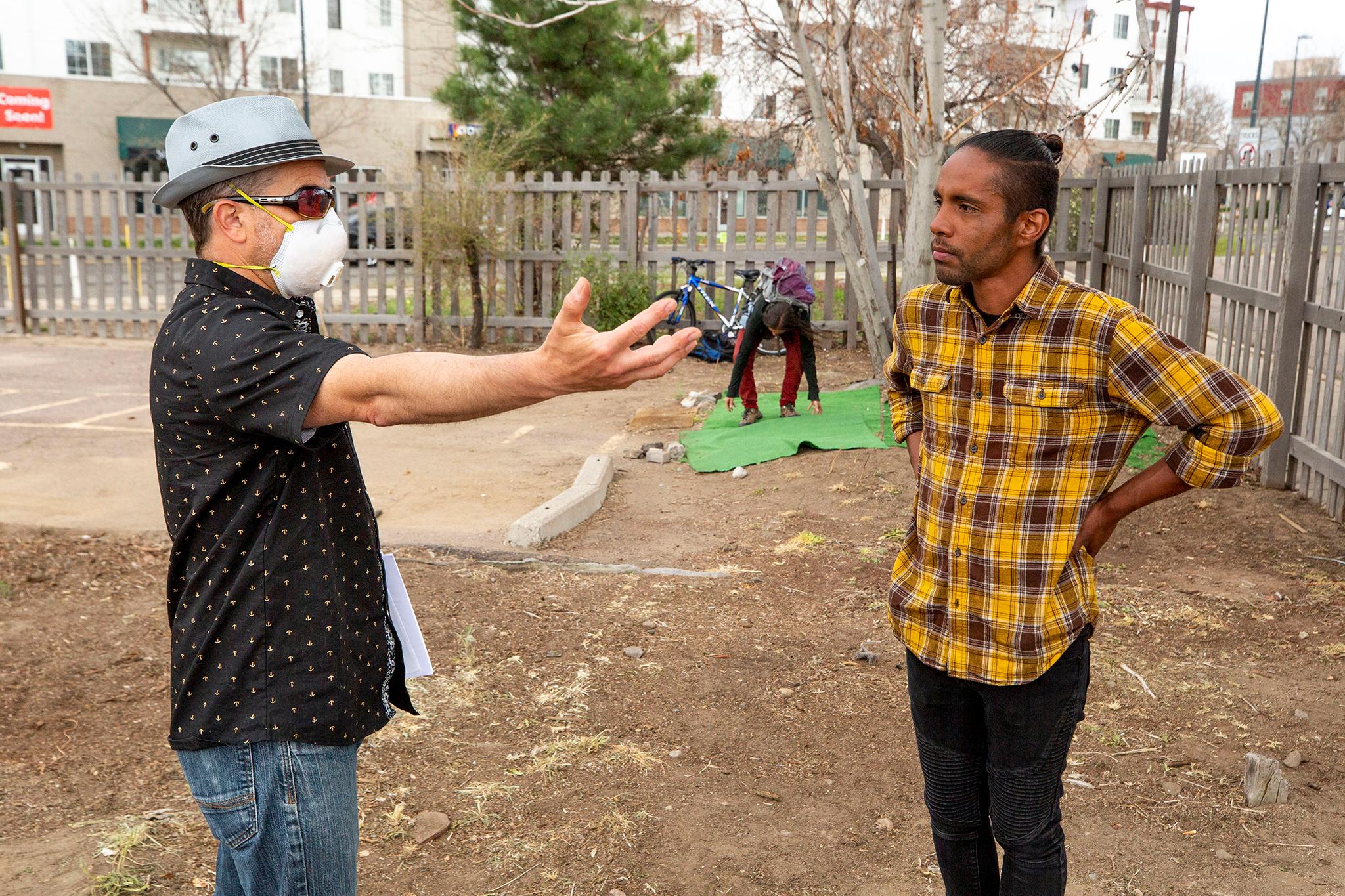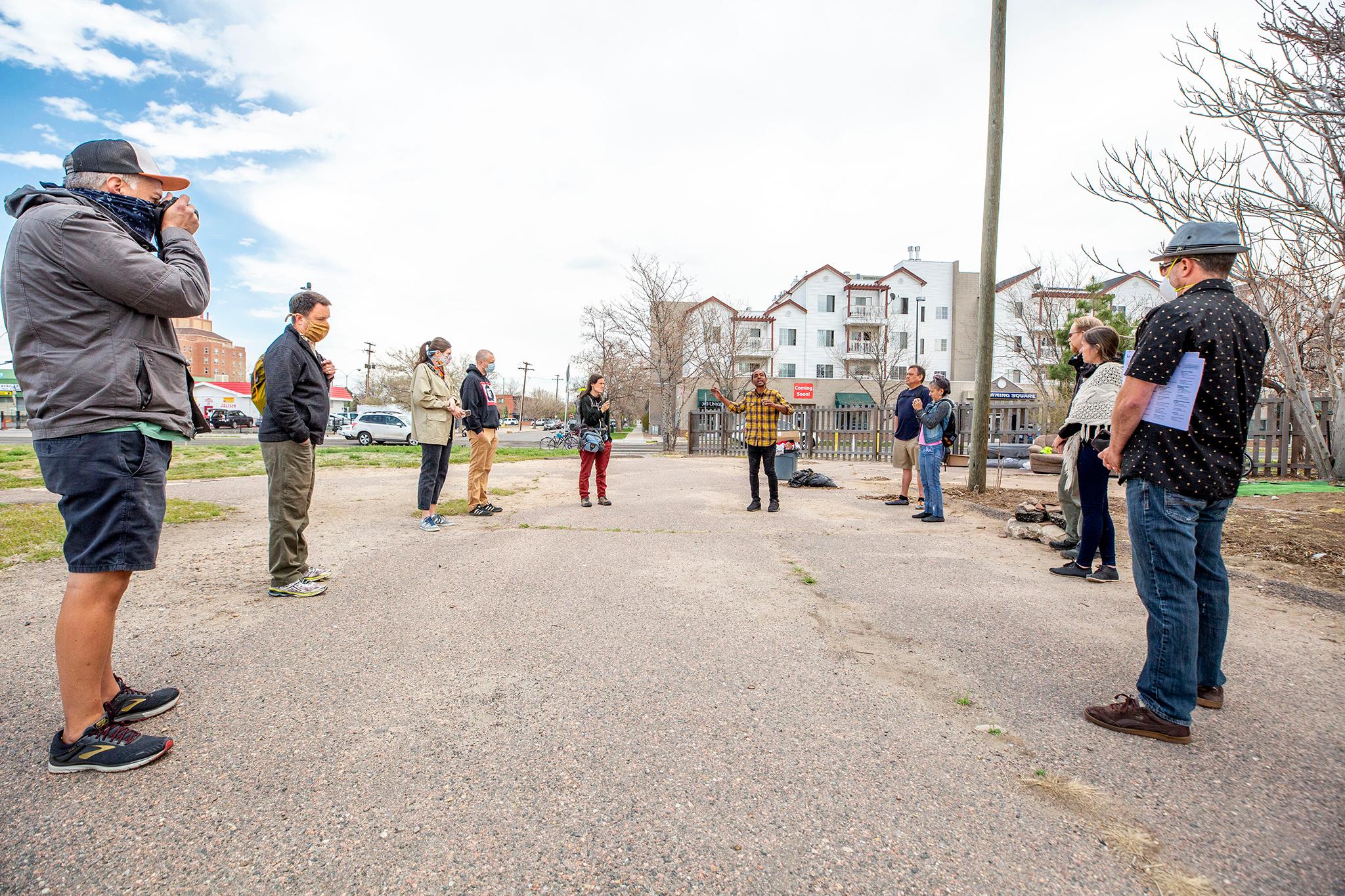After authorities forced people living in tents to move along from their spots near 22nd and Stout streets, the tents quickly popped up on blocks outside the sweep's radius.
Reggie Bradford, who was housed until he lost his job during the COVID-19 pandemic, was among those who moved. He and some friends resettled on a vacant lot at 33rd and Curtis streets. But their stay there was cut short after neighbors complained to Curtis Park Neighbors, the local Registered Neighborhood Organization. RNO members called the police and the lot's owner, Matthew Kinner, telling him he'd face fines if Bradford and company were allowed to stay.
RNO president Jeff Baker said he was afraid the spot would quickly become a massive encampment and "a huge protest site." He said his neighbors' complaints compelled him to remedy the situation. Around 10 p.m. on Friday, Kinner said, the police called him to come down and show them where his property ended. Bradford's group was forced to camp somewhere else for the night.
Bradley Joseph, a member of the RNO, sent Denverite an email with a subject line reading "Illegal trespassing 33rd and Curtis." It said there would be a press conference Saturday to address the matter.
Denver Homeless Out Loud (DHOL), the advocacy group that's long pushed for affordable housing in the city, sent Denverite an email, too. The group would hold its own press conference at the lot an hour before the neighborhood group's.
But no press conference was held. Members of each group arrived a little after 1 p.m. Instead of addressing the public, a long, impassioned and sometimes angry conversation began between everyone who showed up.
When they were done, most everyone seemed to agree: Homelessness is a problem, especially during the pandemic, and the city must do something about it.
At first, things were tense.
Before Kinner and RNO members arrived, Bradford said he had no choice but to camp in public. As dangerous as that may be, he'd take sleeping outdoors over a shelter. Seven staffers working at the makeshift shelter at the National Western Center have tested positive for COVID-19.
"The options I have is death or death," he said.
When he joined the conversation, Kinner hinted that he'd been pulled into a debate that's larger than the lot where he's been working for the last few years to start a development project.
"I feel for all you guys," he said. "The problem is I don't have the ability or the resources to take care of the property."
He would be liable for safety and fines, and he wasn't ready to take those on. He said DHOL was "bullying" him to allow the campers to stay.
"This is a city issue," he said. "We are just one family."
Baker said he and his neighbors want to help push for long-term solutions, but that camping on Kinner's land was just not acceptable.
Terese Howard, who's long worked with DHOL, said she's advocated for a housing solution for years.
"I have watched the failure of the city or the state to do anything for the thousands of people who are living in crisis," she said. "They are particularly unsafe at this time."
Howard said "evicting" Bradford and his friends put them in further danger.
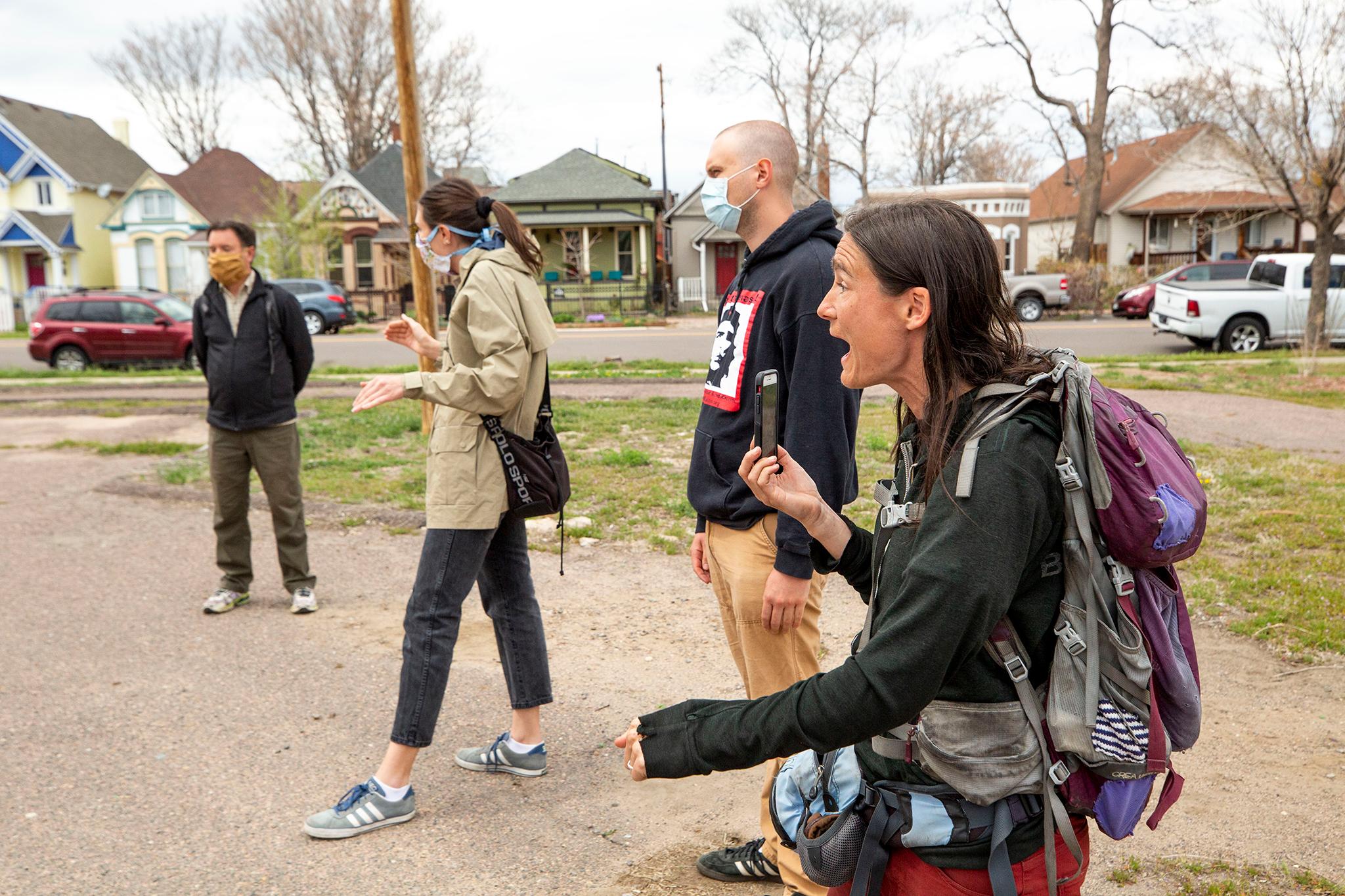
As they spoke, John Hayden and his husband, Keith, appeared. They live nearby, and they were fired up when they arrived.
Keith, who declined to give his last name, shouted.
"They were told they were trespassing," he said. "They did not get evicted!"
He told Denverite later that DHOL "is manipulating the press" by framing complaints as an eviction. He's concerned that encampments invite drug use. Allowing people to camp wherever they want is not the way to fix the problem.
"It's a law and order issue," he said. "We have laws. They're anarchists."
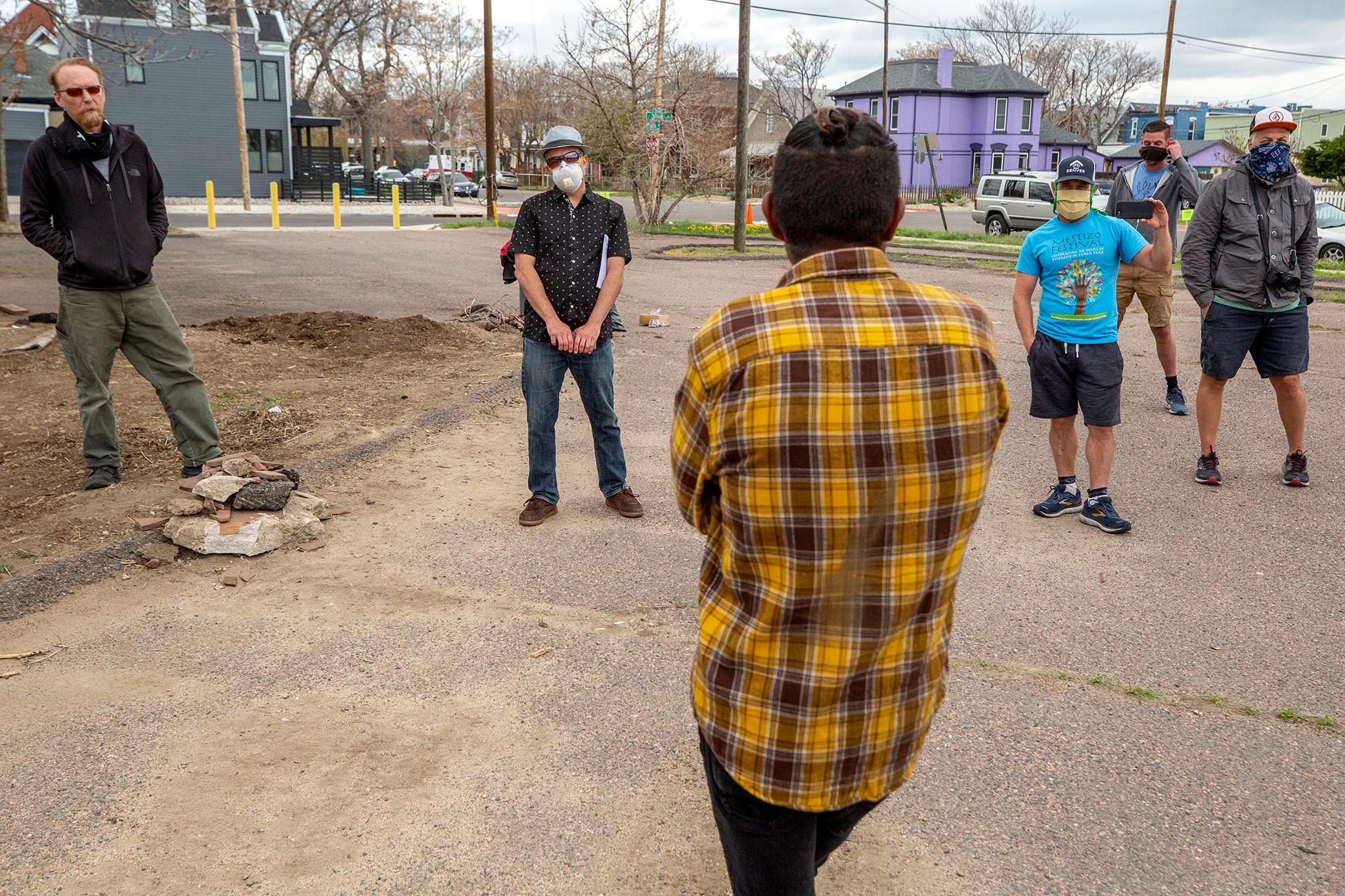
Joseph, who sent Denverite the email about the press conference, said he couldn't understand why people didn't just go to the shelter.
Bradford left the circle several times. He said later that the neighbors' arguments were too difficult to hear.
The conversation eventually shifted to solutions.
Baker said his group supports the idea of a safe outdoor space, a regulated place where people could camp within the city. Hayden said he and his neighbors have tried contacting the city to advocate for such a fix, though the mayor has said he's not on board with the concept.
In the short term, Baker suggested, people might camp in city-owned parking lots that are currently vacant.
"A public property is gonna be a better bet," Kinner said. "This just has me facing fines."
He said he wasn't willing to pay $1,000 a day for people to sleep on his lot, and he doubted DHOL could afford it. But he said that he'd like to help pressure the city to do something. Baker and the RNO members agreed.
Both Baker and Bradford said they envisioned something like a tiny home village, where people could live in a nontraditional community with rules and oversight.
Howard said any push had better be for affordable housing, though she added that any such campaign won't address the "immediate crisis."
As the conversation ended, some who were yelling at each other began working together to clean the lot. They moved couches to the side of the road where they'd be picked up by city workers. Howard and Kinner carried an overflowing trashcan to a nearby dumpster.
"I'm sorry we caused such a hassle for you," Bradford told Kinner, who replied that it wasn't a problem. Falling again into homelessness and trying to survive, Bradford said, has a way of fraying nerves.
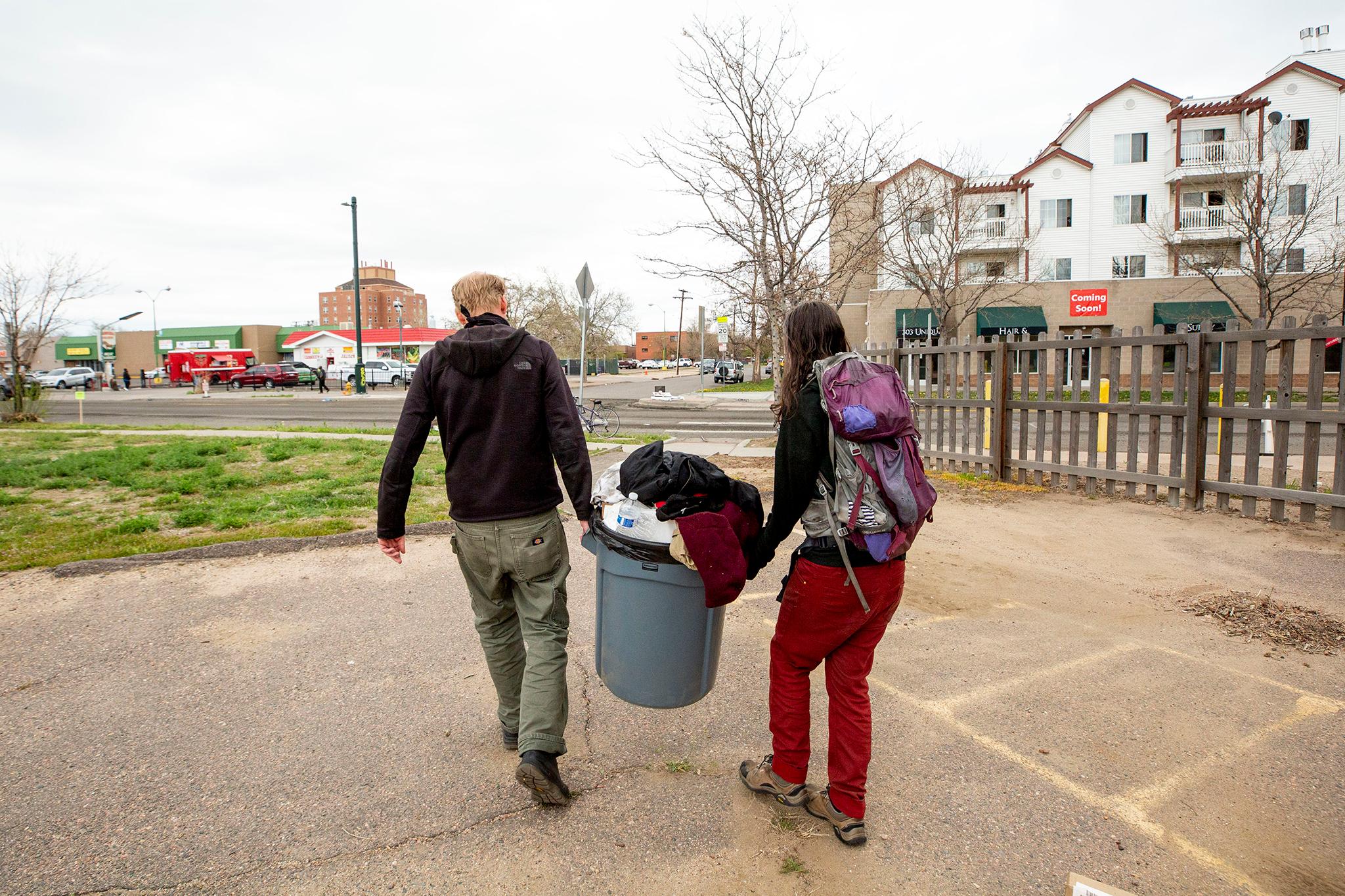
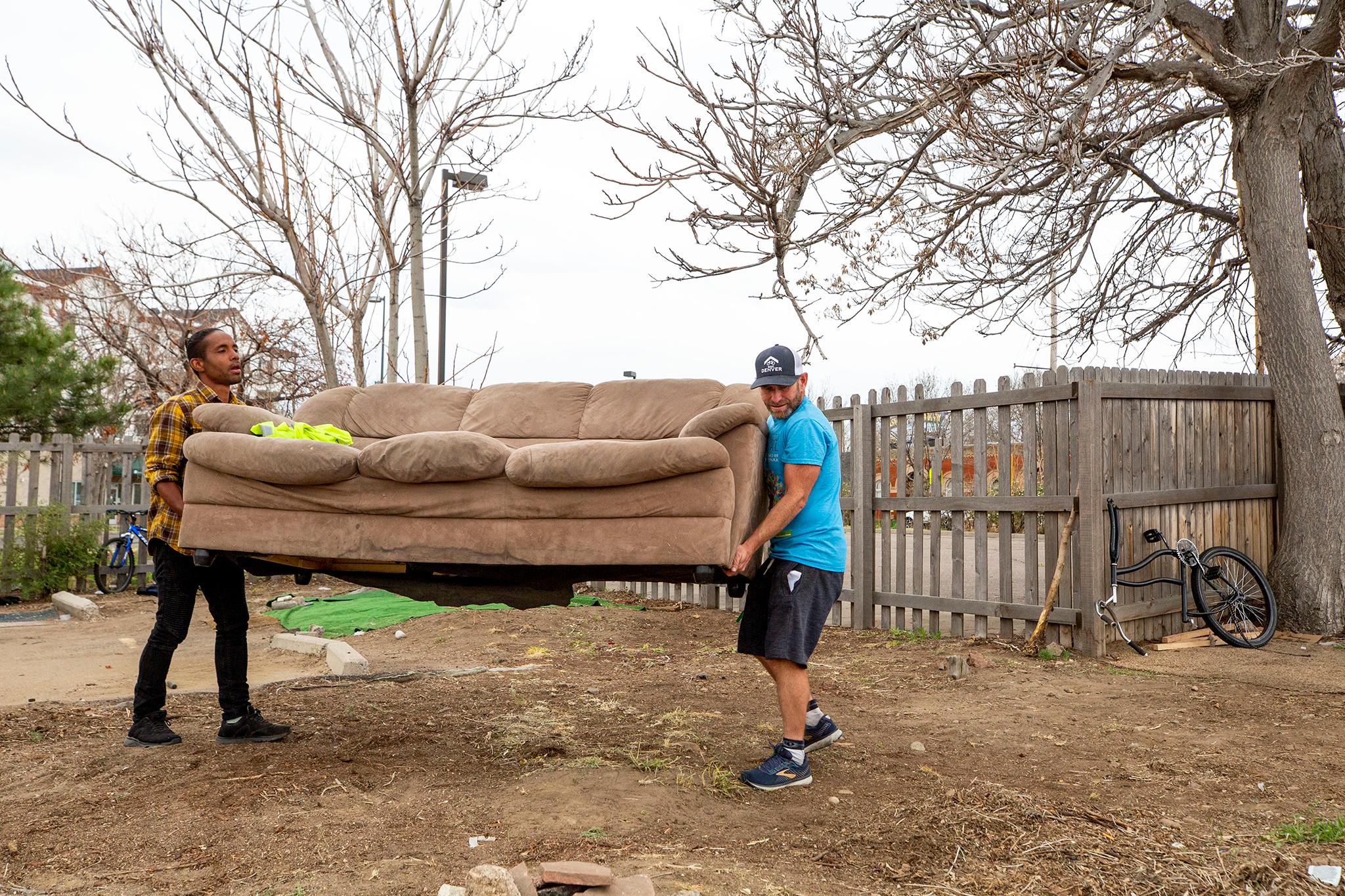
Afterward, Hayden said it seemed they could work together.
"The city is creating conflict between housed and unhoused residents. It angers me," he said. "They haven't seen the neighbors here and the homeless come together."
Bradford, too, expressed hope that might work.
"It was constructive in the sense that now I know there are people willing to fight the good fight," he said, adding that the anger he heard from Hayden's husband wasn't helpful.
Still, Bradford would sleep somewhere else Saturday night, he said, until he was forced to move along again.
